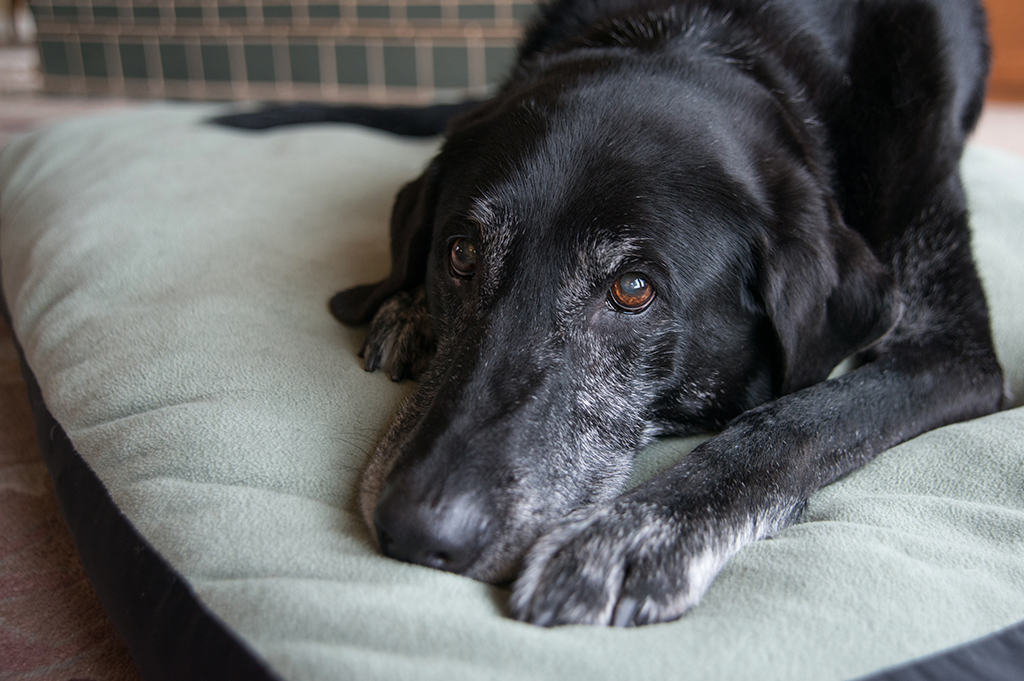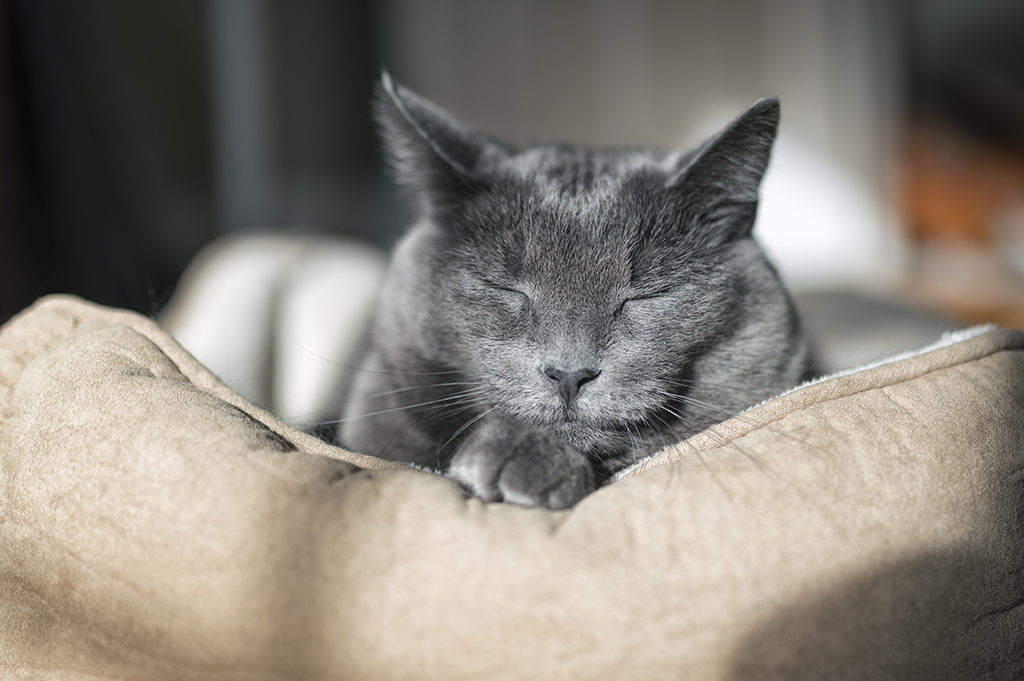Cognitive dysfunction syndrome, otherwise known as dementia, is well recognised in people. However, did you know dogs and cats can also suffer from dementia? Particularly now they are living longer lives, dementia can be very common in geriatric dogs and cats, with one study identifying as many as 68% of dogs aged 15 to 16 years old could be affected. We’ve spoken to our pet health expert about dementia in dogs and cats, and how best to care for pets who are suffering.
What is cognitive dysfunction syndrome?

Cognitive dysfunction syndrome (CDS) is associated with the brain ageing, which is why the syndrome is associated with older cats and senior dogs, just like in people. It can affect your pet’s cognitive abilities, which can impact their memory and learning. CDS can also affect their ability to function, as well as change their behaviour. Similarities have been identified between the brains of dogs with the syndrome, and human brains affected by Alzheimer’s.
Cats and dogs with dementia – the symptoms
Symptoms of dementia can vary in each individual pet, but could include abnormal behaviours such as:
– Being lost or confused in a familiar environment.
– Hiding behind furniture and in corners.
– Staring at walls, or into space.
– Poor response to verbal cues.
– Difficulty finding the door.
– Changes in social interactions with humans and other animals.
– Sleeping more.
– Being restless at night.
– Loss of house training.
– Pacing or wandering.
– Repetitive behaviours.
– A change in appetite.
Diagnosing CDS

Many owners assume the behavioural changes of pets with cognitive dysfunction syndrome happen normally with ageing, and so the condition is underdiagnosed. Some symptoms can also be difficult to spot, and a diagnosis is usually made through the exclusion of any other causes. Because of this, regular veterinary health checks are recommended for older pets.
Treatment and management of CDS
Unfortunately, there is no cure for cognitive dysfunction syndrome. However, changes can be made to your pet’s management to slow the process and support them as they age. Maintaining a good routine can also help to reduce your cat or dog’s anxiety.
Environment
Pets suffering from dementia may need a change in environment to accommodate their needs. Cats may need extra litter trays, for example, and older pets should be provided with a quieter area, away from people, children and other animals.
Routine

Your pet’s routine might change if they suffer from CDS, and you may notice a change in their appetite, sleeping more than usual, or being restless at night. Changing their routine may be particularly important for dogs, who could need to be taken out to toilet more frequently. You might also need to increase the frequency of walks to encourage sleeping through the night.
Diet
Appropriate dietary support and nutritional supplements* can prove beneficial for older pets and animals suffering with dementia. Senior dog or cat food is designed with the different needs of older pets in mind, and supplements such as omega-3 fatty acids could have positive effects. We’d always recommend consulting your vet before making any changes to your pet’s diet.
Other therapies
Other complementary therapies include compression garments for your pets, aromatherapy, pheromones, and herbal supplements. Overall, maintaining some exercise, as well as mental and physical stimulation, can be beneficial for your pet’s health, and help to enrich their lives as they age.
It can be tough seeing your furry friends get older, but we hope this guide gives you the advice you needed to care for your ageing dog or cat. If you notice any behavioural changes in your pets, it’s always recommended to consult your vet. If you have an older dog or cat, you might want to think about taking out insurance. At The Insurance Emporium, our Senior Dog Insurance and Senior Cat Insurance are designed with older pets in mind, and can include a range of Standard Benefits like cover for Vet’s Fees up to £8,000^. You could even receive up to 30% discount† on your policy! Head on down to The Insurance Emporium to find out more.
* The Insurance Emporium do not cover costs resulting from your pet being overweight or prescription diets.
^ Cover for Vet’s Fees up to £8,000 available on lunar monthly Lifetime Gold policies.
† The 30% discount is made up of 20% Introductory Discount plus 10% Multi-pet Discount (if appropriate). The Introductory Discount is available for the first 12 premium payments on lunar and calendar monthly policies or one premium payment on annual policies.
All content provided on this blog is for informational purposes only. We make no representations as to the accuracy or completeness of any information on this site or found by following any link on this site. We will not be liable for any errors or omissions in this information nor for the availability of this information. We will not be liable for any loss, injury or damage arising from the display or use of this information. This policy is subject to change at any time.


